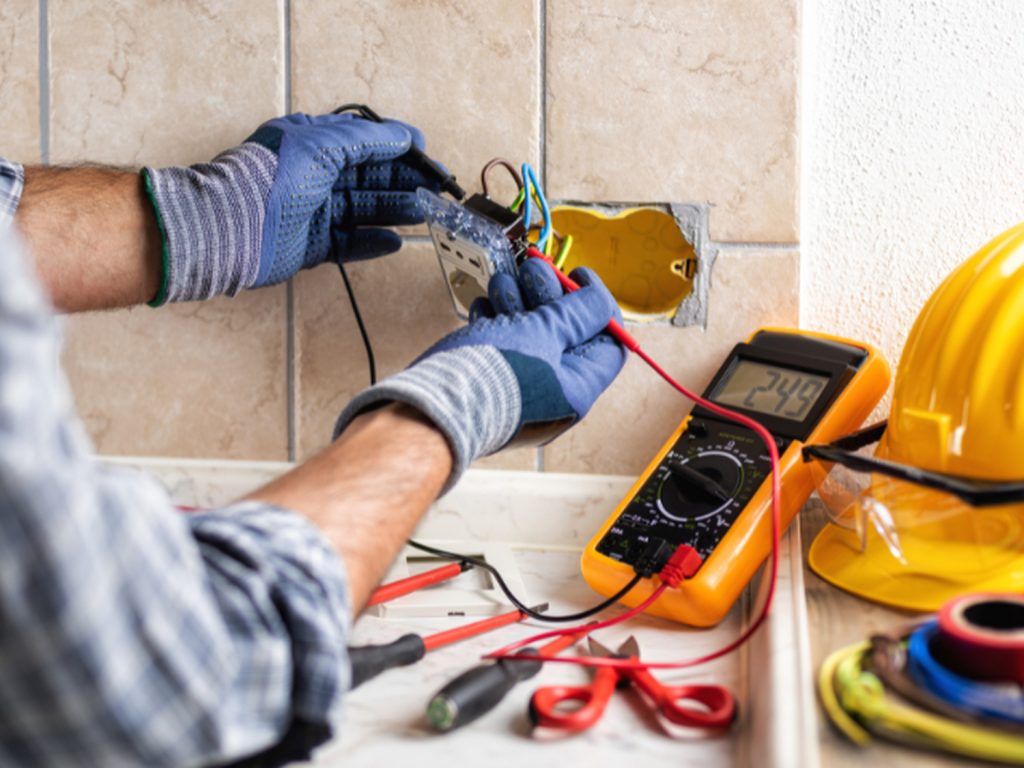Faulty wiring can be a major cause of fires and other injuries. This unfortunate event is not uncommon but some people don’t learn from it. Many people ignore warning signs that indicate underlying problems, such as a malfunctioning thermostat or a microwave acting strangely when you made a pie.
Some signs of an electrical problem can be hidden behind walls. Others are easily visible. You must learn how to recognize these potential signs so that you can correct them and call an qualified electrician in manurewa immediately.
Warning Signs of an Electrical Problem
It is crucial to recognize the signs of an electrical problem early on. There are certain things you can do even if your not an electrician.
Flickering lights
It could be an indication of an electrical problem if your lights flicker in your home. Flickering lights can be a sign of a problem. It usually indicates that the bulb has not been tightened enough and could loosen over time.
A faulty switch could also cause flickering lights. If the connection between the bulb and the switch is poor, flickering lights can result. This happens because the electricity that should flow freely is interrupted by the problem.
These are minor issues that can be quickly fixed. Flickering lights may also indicate major electrical problems such as fluctuating voltage, circuit overloads and loose wiring. These problems can be fixed in a variety of ways, which are listed below:
- Overloaded Circuit
An overloaded circuit can cause your light to flicker when you turn on major appliances like refrigerators and dishwashers. A circuit that is overloaded means the power supply cannot handle the electric load.
If you have any questions, it is worth having an expert examine your appliance to determine if you require a new or additional circuit breaker. An overloaded circuit can cause electrical wirings to heat up, leading to a fire.
- Fluctuating Voltage
As part of electrical currents, they fluctuate. The voltage should be equal to the country’s standard voltage. If you notice flickering light, you may need to test the voltage in your home with a voltmeter. Flickering lights caused by fluctuating voltage can cause damage to other appliances in your home and cost you a lot. This should be a regular part of your house maintenance routine.
- Loose Wiring
If you don’t take care of your wiring, flickering lights could indicate that there is a problem. Arcing can also be caused by loose wiring. Arcing occurs when an electric current leaps over a gap between two wires. If you see flickering lights or loose wiring, contact experts immediately.
Burning Smell
A burning sensation or odor could indicate electrical problems. If you notice a burning sensation and the power is still on, it could be an indication of electrical problems. Overheated insulation in a circuit could also be causing the odor. You must locate the source of the burning smell, especially if it smelt like vinyl or plastic. This is an indication that you have an electrical problem. Untreated, an electrical problem can quickly turn into a fire that causes damage to your home and property. This is why you should contact professionals in fire damage repair and other large cities.
Sizzling Sound
A cross-section of two copper and blue wires, on a background with a green/black gradient.
If you hear a buzzing sound when you turn on a light, or plug in an appliance’s power supply, it could be an indication that insulation is damaged and must be replaced. A short circuit can be caused by arcing within wires that occurs when a circuit is open. A short circuit is an electrical current jump that crosses an open circuit and could ignite insulation. This can lead to electrocution accidents or fire hazards, as well as water contact.
Circuit Breaker Trips – Repeatedly
It could indicate an overload circuit by causing your circuit breaker to trip repeatedly without any apparent reason. The breaker trips in order to prevent the electrical system being damaged from too much current and voltage. If your circuit breaker trips frequently, you should investigate the cause and determine if there are any other appliances that may need to be checked.
Takeaways
Electrical problems can pose a danger to property and lives. Flickering lights are a sign of a larger electrical problem than you might initially believe. To avoid a possible fire, immediately identify the source of burning plastic or vinyl.
A sizzling sound can also be a sign of a fire hazard and should not be ignored. To prevent potential dangers from an overloaded circuit, it is important to be alert if your circuit breaker trips frequently.









